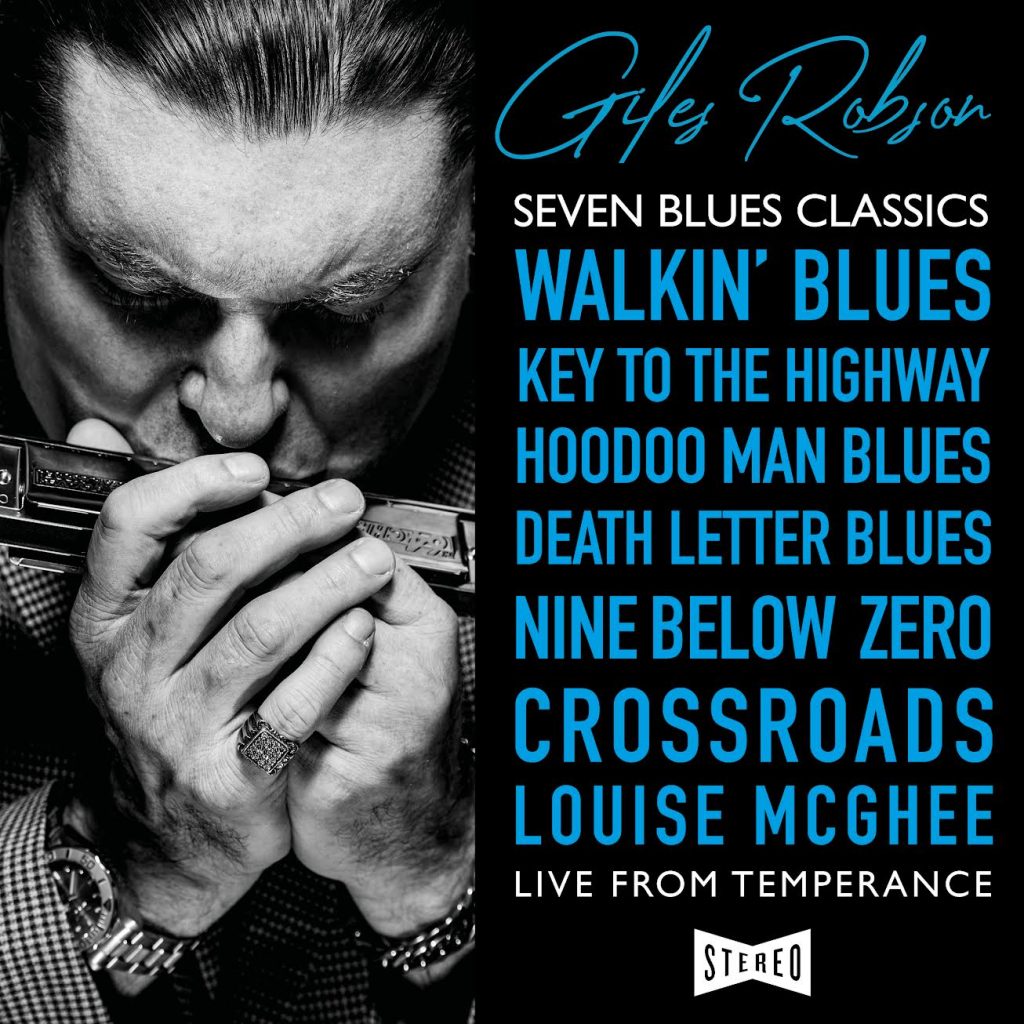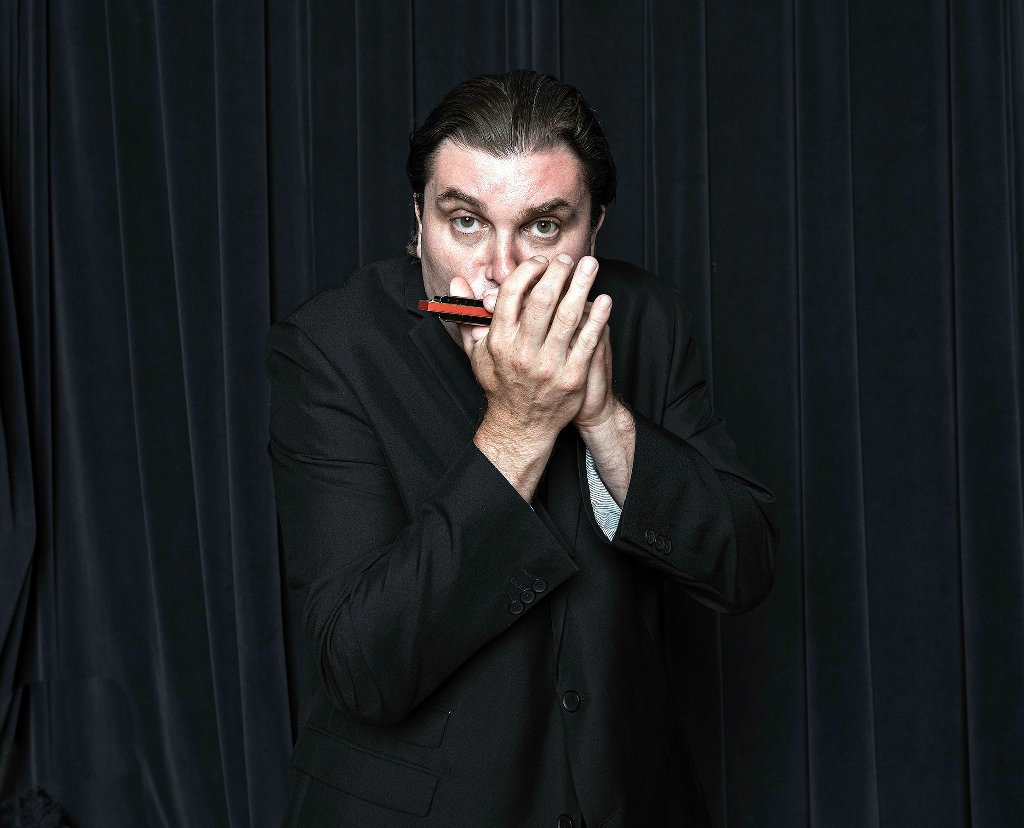Multi-award winning Giles Robson is recognized across the world as a blues harmonica virtuoso which is why the prestigious American record label Alligator signed him up as their first and only UK or European artist. Giles won the Memphis Blues Music Award for best acoustic album, Journeys To The Heart Of The Blues featuring Bruce Katz and Joe Louis Walker which was subsequently voted one of the albums of the decade by Living Blues magazine. Last year, Robson sold out all his gigs at the iconic Edinburgh Fringe Festival and toured Europe with Grammy nominated Chicago blues legend John Primer.
On Seven Blues Classics, Giles pays homage to American blues music’s true greats from the Delta to Chicago, Robert Johnson, Sonny Boy Williamson, Son House, Big Bill Broonzy and Junior Wells. This proved to be a wise choice given the range of mainly acoustic songs from those pioneers of the genre. Giles prefers intimate concert settings so that he can really engage with and relate to his audience, which is why he chose the atmospheric venue Temperance in the small English town of Leamington Spa.
Another smart move was to perform alongside one of the most respected guitarists on the London blues scene, Italian Manny Fizzotti whom Bruce Iglauer (Head of Alligator) rates highly as a musician who can play “blues and variations on blues in many styles with taste and credibility.” Manny plays Dobro guitar with slide in perfect synchronicity with Robson’s melodic harp and helps to recreate the vibe of Delta blues in a Mississippi juke joint.

The album opens with Johnson’s classic “Walkin’ Blues,” Fizzotti maintaining the constant rhythm underpinning Robson’s wailing harp and powerful vocals, the latter doing justice to Son House’s raw and emotional lyrics from the 1930s. The song reflects the struggles of African Americans, the duo retaining the musical structure and lament of the original.
Big Bill Broonzy’s “Key To The Highway” was the first song to be elected to the Blues Hall Of Fame and is a touchstone for blues fans and musicians across the world. The version on this recording is reminiscent of the Broonzy collaboration with Mississippi-born Jazz Gillum – a combination of tasteful, intricate guitar strings and accentuated harmonica phrasing and resonant vibrato.
Junior Wells’ Chicago Blues Band with Buddy Guy in 1965 recorded the mystical and mysterious “Hoodoo Man Blues” at a much faster tempo than this acoustic masterpiece from Robson, characterized by Giles’ expressive vocals and soulful, haunting harp attacks. He made this song his own and the audience cheered at the sheer audacity of the innovative interpretation which enhanced its emotional impact. This included a sublime solo involving the extended blowing of notes with such breath control as to defy the laws of physiology.
Son House is another legendary bluesman of the Delta whose signature song was chosen for this recording, albeit after he was rediscovered in 1965. “Death Letter” tells the story of a man receiving a letter telling him of the death of his lover and the need to get to the location of the body before the funeral. This interpretation by the duo is equally emotionally charged but more up-tempo, Robson’s minimalist harp interspersed with his trademark inspired flourishes.
Sonny Boy Williamson’s “Nine Below Zero” maintains a steady rolling beat underpinning Giles’ consummate storytelling of a man feeling lonely and abandoned, longing for warmth and affection but abandoned and out of reach. The poignancy expressed by both musical instruments builds up to a climax appreciated by the now animated audience.
Johnson’s “Crossroads” is the highlight of a brilliant performance with its mesmeric rhythm and superb harp solos of increasing speed and complexity. It can only be assumed that Giles Robson also sold his soul to the devil but it must have been worthwhile to become the harmonica genius he is today.
The heartbreaking account of a failed marriage and the long wait for reconciliation is central to “Louise McGhee” by Son House. The pain is tangible in Manny’s sublime guitar strings which underpin the echoing vocals and short and sharp harmonic interpolations. A Giles Robson instrumental, “GR’s Locomotive Blues” brings this remarkable tribute to the end of the line, leaving the audience spellbound with a literally breathtaking performance of solo harp playing and pure showmanship. The sound production is excellent in this basement venue and captures the intimate feeling of the evening.
The CD is available to order now directly here and will have full worldwide digital distribution from July 1st.


